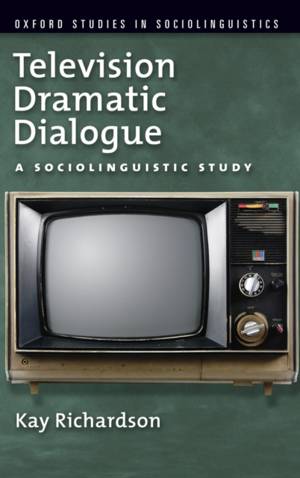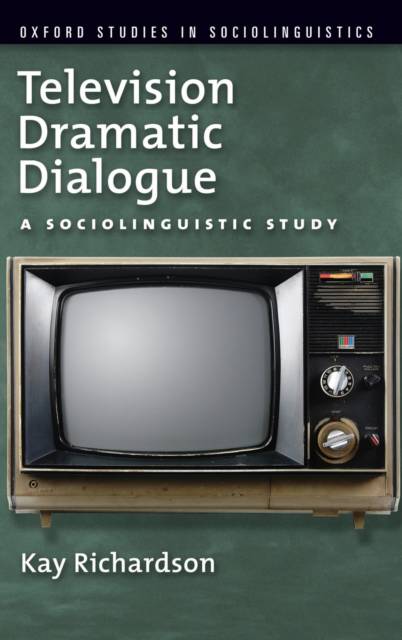
Vous voulez être sûr que vos cadeaux seront sous le sapin de Noël à temps? Nos magasins vous accueillent à bras ouverts. La plupart de nos magasins sont ouverts également les dimanches, vous pouvez vérifier les heures d'ouvertures sur notre site.
- Retrait gratuit dans votre magasin Club
- 7.000.000 titres dans notre catalogue
- Payer en toute sécurité
- Toujours un magasin près de chez vous
Vous voulez être sûr que vos cadeaux seront sous le sapin de Noël à temps? Nos magasins vous accueillent à bras ouverts. La plupart de nos magasins sont ouverts également les dimanches, vous pouvez vérifier les heures d'ouvertures sur notre site.
- Retrait gratuit dans votre magasin Club
- 7.000.0000 titres dans notre catalogue
- Payer en toute sécurité
- Toujours un magasin près de chez vous
Description
When we watch and listen to actors speaking lines that have been written by someone else-a common experience if we watch any television at all-the illusion of "people talking" is strong. These characters are people like us, but they are also different, products of a dramatic imagination, and the talk they exchange is not quite like ours. Television Dramatic Dialogue examines, from an applied sociolinguistic perspective, and with reference to television, the particular kind of "artificial" talk that we know as dialogue: onscreen/on-mike talk delivered by characters as part of dramatic storytelling in a range of fictional and nonfictional TV genres. As well as trying to identify the place which this kind of language occupies in sociolinguistic space, Richardson seeks to understand the conditions of its production by screenwriters and the conditions of its reception by audiences, offering two case studies, one British (Life on Mars) and one American (House).
Spécifications
Parties prenantes
- Auteur(s) :
- Editeur:
Contenu
- Nombre de pages :
- 272
- Langue:
- Anglais
- Collection :
Caractéristiques
- EAN:
- 9780195374056
- Date de parution :
- 07-04-10
- Format:
- Livre relié
- Format numérique:
- Ongenaaid / garenloos gebonden
- Dimensions :
- 156 mm x 234 mm
- Poids :
- 551 g







